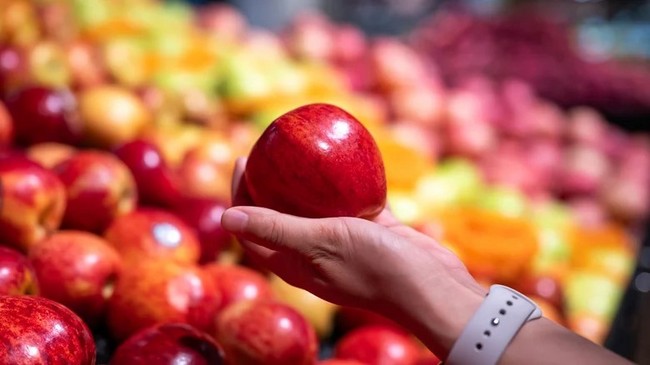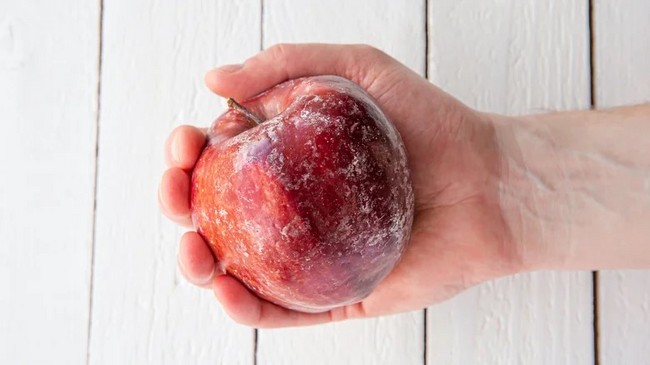✕



✕

Tag:apple facts 2025-02-07 09:49

Wang Yukun/Getty Images
You're at the grocery store, eyeing rows of shiny, fresh apples glistening under fluorescent lights (little do you know, some of these apples may be a year old). Their perfect polish tempts you to grab a few for your basket, but then you recall a viral video warning about the wax coating on apples — allegedly "toxic" and linked to cancer. Confused, you wonder if any of these apples are safe to eat. Contrary to the false information about apples you may believe is true, experts have debunked this alarming theory.
Apples naturally produce their own wax coating called "bloom." This natural wax contains over 50 compounds, primarily including esters — organic compounds derived from acids and alcohols that give fruits their characteristic smells. This wax acts as nature's barrier, shielding apples from moisture loss and external damage as they grow. Farmers wash apples during harvest to remove dirt and debris, unintentionally stripping away this natural layer. Producers then apply a thin, edible layer of wax to maintain the fruit's freshness and shelf life. Despite the misconceptions, experts affirm this added wax has no health risks — it's regulated for safety and there is no evidence that it poses harm to consumers.
Why do companies spray wax on apples?

FotoHelin/Shutterstock
The process of coating apples with food-grade wax is surprisingly straightforward and beneficial. Commonly used waxes include carnauba (also often used in candy), beeswax, and shellac — all approved by the FDA. These coatings enhance moisture retention, inhibit mold growth, and slow ripening. Since apples are primarily made up of water, this layer prevents them from drying out and losing their crisp texture. Far from being harmful, the wax coating is essential for preserving apples during transport and storage. It also forms a protective barrier that keeps harmful microorganisms from entering the fruit, reducing the risk of illness.
This practice isn't unique to apples either. Pears, plums, citrus fruits, cucumbers, tomatoes, peppers, and other crops are coated with wax to maintain appearance and freshness. If you prefer not to consume the wax coating, remove it by peeling the apples or scrubbing them with warm water, lemon juice, baking soda, and vinegar. However, it might be beneficial to know that since the amount of wax sprayed on apples is minimal (only a few drops), the wax is indigestible, meaning it will pass through your digestive system without being absorbed. Ultimately, the real focus should be washing apples to remove bacteria rather than worrying about the wax. Whether you enjoy your apples waxed or unwaxed, rest assured they remain a healthy and delicious snack.
Coke's Hottest Seller Has Nothing To Do With Soda
Think Twice Before Using Extra Virgin Olive Oil When Grilling Your Steak
The Milk Brand That Lasts Longer Than Other Milks And Why
The Beloved Chicken Restaurant With A Fish Sandwich Only Available Once A Year
About Us Terms of Service Privacy Policy Contact Us
Hotline(+86)17301604571
 Enterprise WeChat
Enterprise WeChat
for Client Service
 EZBuy
EZBuy
WeChat APP
Sinoexpo Digital Platform
Shanghai Sinoexpo Informa Markets International Exhibition Co., Ltd. All rights reserved
沪ICP备05034851号-77
 沪公网安备31010402000543号
沪公网安备31010402000543号